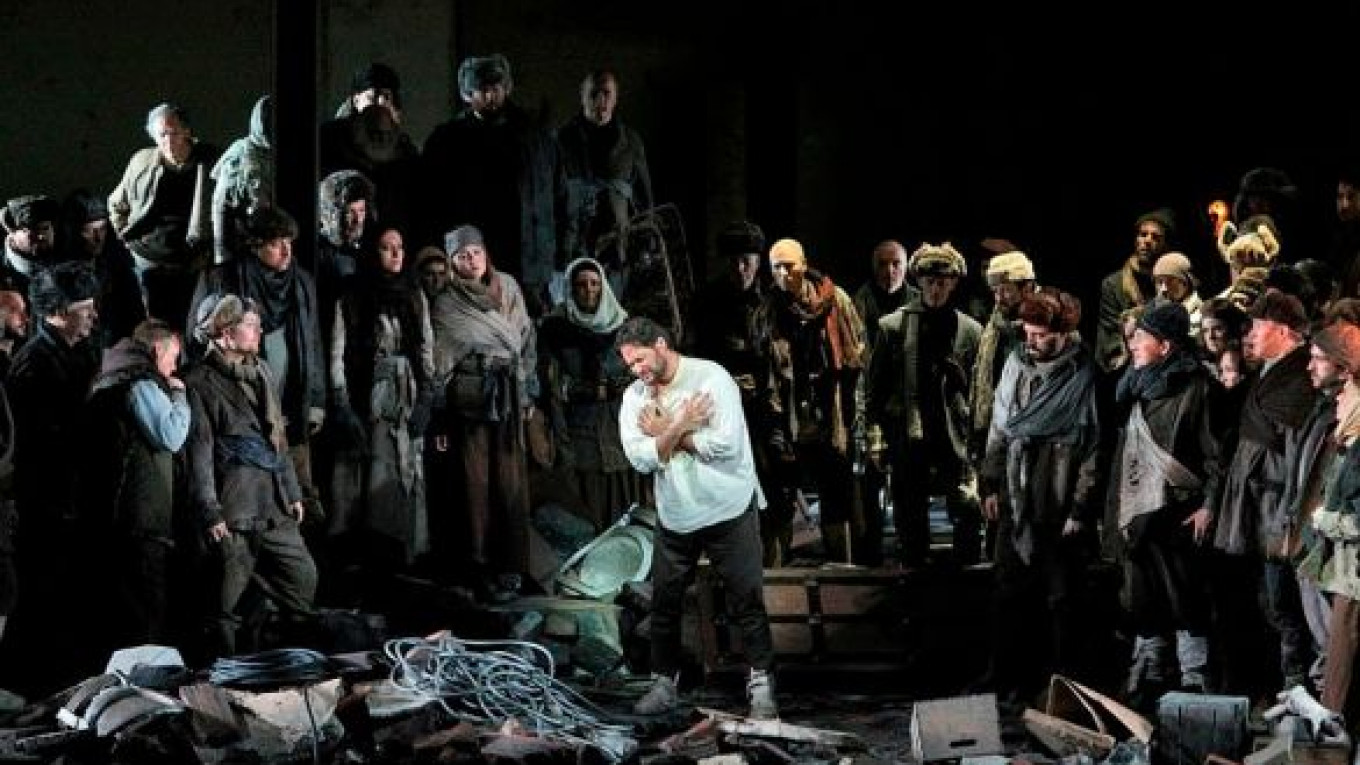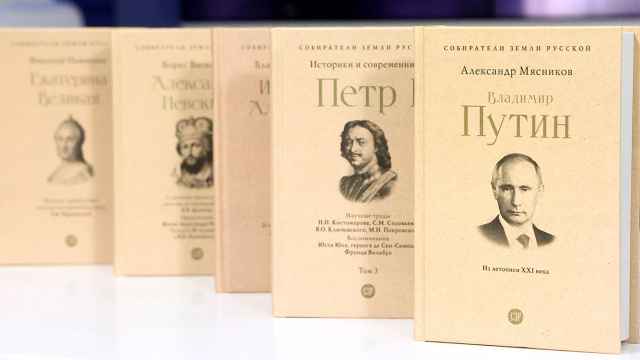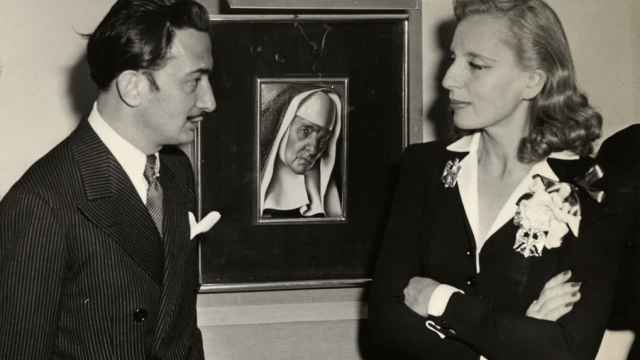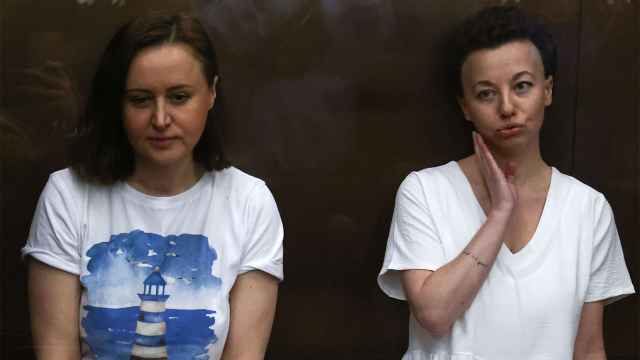The week before last, New York's Metropolitan Opera presented a new production of Alexander Borodin's "Prince Igor," directed by Dmitry Chernyakov, well-known to Moscow audiences for his five stagings at the Bolshoi Theater — most recently, of Mikhail Glinka's "Ruslan and Lyudmila," which served to re-open the theater's Main Stage in late 2011 — and at least four others brought to Moscow from St. Petersburg and Novosibirsk.
Chernyakov has provoked much controversy both at home in Russia and throughout Western Europe, where he has been extremely active in recent years, principally for his flights of fancy that have often seemed at odds with the intentions of both composers and their librettists.
As witnessed at its opening performance, Chernyakov's "Prince Igor" seemed by far the most profound and well-considered staging of the opera in my experience — a far cry, in particular, from the drab and savagely abridged version that premiered at the Bolshoi last June — and almost certainly among Chernyakov's finest work to date. Musically, as well, it was treated to a performance of extraordinary quality.
Moscow audiences will have a chance to judge for themselves on March 1, when a live telecast of the new "Prince Igor" is due to be shown at seven local cinemas.
The opera's story tells of Prince Igor of Novgorod-Seversk, who in the year 1185 sets out from the town of Putivl, in what is now northeastern Ukraine, with an army and accompanied his son, Vladimir, to battle a menacing nomadic tribe called the Polovtsians, leaving his wife, Yaroslavna, in the care of her treacherous brother, Prince Galitsky. Igor is defeated and captured. The rather benevolent leader of the Polovtsians, Khan Konchak, offers Igor an alliance. But Igor chooses instead to escape and returns home to find Putivl in ruins.
Chernyakov has very effectively moved the action forward in time to what looks vaguely like the early decades of the 20th century and, instead of the presenting the opera in the usual fashion as a sort of historical pageant, concentrates on Igor's psychological development, as the Prince comes to terms with defeat, returns home a broken man and finally resolves to begin anew, with the rebuilding of Putivl as his starting point.
Ukrainian soprano singer Oksana Dyka plays Yaroslavna in Prince Igor.
The most surprising aspect of the production is Chernyakov's treatment of the Polovtsian act. In place of the customary lavishly decorated, pseudo-oriental camp site, the director has chosen to place it in a vast field of red poppies, where the action passes by as if witnessed by Igor in a dream.
Borodin labored over "Prince Igor" for 18 years. But at his death in 1887, it still remained very much a work in progress and only came to the stage three years later due to the joint efforts of fellow composers Nikolai Rimsky-Korsakov and Alexander Glazunov, who completed the orchestration and added a fair amount of their own music.
Chernyakov and conductor Gianandrea Noseda, together with several Russian musicologists, have come up with a new version of the score, ridding it of everything not composed by Borodin and adding pieces of the original score that are rarely performed or were entirely unknown to Rimsky-Korsakov and Glazunov, as well as an orchestral passage from another of Borodin's works.
The result comes across as considerably more powerful and coherent than the version concocted by Borodin's colleagues.
The Met fielded an exceptionally strong cast for "Prince Igor" featuring singers from Russia, Ukraine, Georgia and Slovakia.
It is difficult to imagine any present-day interpreter of the title role coming as close to ideal in voice, appearance and manner as did Ufa-born lyric bass Ildar Abdrazakov. As Yaroslavna, Ukrainian soprano Oksana Dyka gave a touching and appropriately dignified stage performance, but her voice, though sweet and accurate, seemed rather lacking in weight.
Russian actors in Prince Igor
From the Mariinsky Theater came tenor Sergei Semishkur, as a clear-voiced Vladimir, and bass Mikhail Petrenko, who sang and played the lascivious, cynical, power-hungry Prince Galitsky to the hilt. Georgian mezzo-soprano Anita Rachvelishvili brought a gorgeously voluptuous voice and manner to the role of Konchak's daughter, Konchakovna. The only real disappointment was the Konchak of Slovakian bass Stefan Kocan, who brought nothing at all memorable to the Khan's colorful aria.
The Met's chorus sounded authentically Russian and its orchestra played with real splendor, in what struck me as a thoroughly idiomatic interpretation on the part of Noseda, whose Russian credentials include a decade as principal guest conductor of the Mariinsky.
The live telecast of "Prince Igor" (Knyaz' Igor') from the Metropolitan Opera House in New York can be seen on March1 at 9 p.m. at Formula Kino theaters Gorizont, Europe, Na Rublovke, City, Strela and Chertanovo and at the Kinozal of GUM. The telecast is due to be repeated in recorded form on March 15 at 3 p.m. at Formula Kinos Gorizont and Europe and at the Kinozal of GUM. Addresses can be found in the Calendar Listings.
Contact the author at: artsreporter@imedia.ru






